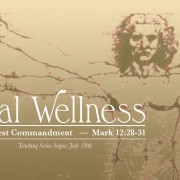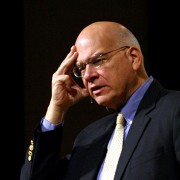Total Wellness #6 – Loving Yourself – Daniel Fusco @ Calvary North Bay
/0 Comments/in Podcast/by danielfuscoSaturday Reflection – Dr. Tim Keller speaking at Google on “The Reason for God”
/1 Comment/in Apologetics, Bible, Call of God, Church Issues, Church Planting, Culture, Discipleship, Evangelism, Ministry, Pastoral Resources, Practice, Revelation, Social Responsibility, Trends/by danielfusco¿ Apostolic ?
/22 Comments/in Bible, Call of God, Church Planting, Discipleship, Ministry, Random Tangents, Trends/by debenmI recently heard a Christian leader say that “church planters” hold an apostolic role in the church, and that they ought to recognize their call as apostles. Yes, he made a distinction between “the 12” foundational apostles of the church, and explained that an apostle, according to mere definition, is [essentially] one who is sent. A modern day missionary. A “church planter.”
I don’t necessarily have a problem with the title of “apostle” being used for a “church planter.” I think we all recognize the difference between modern day missional pioneers and say, the Apostle John. My concern is that some, who are giving counsel and advice to up and coming planters, are painting a picture of the “church planter” as being some sort of rogue lone ranger, on a mission to which all else refuse to embark.
As I listened to the remainder of the exhortation, seeking to keep an open mind, I found myself thinking, “every true apostle must always begin as a servant.” The reality is that an apostle leads as a servant throughout their ministry. I’m not sure where this splinter cell mindset is coming from, but I don’t think we observe it in the scriptures.
Without a doubt, the church planting, missional, total abandoned, standout apostle of the New Testament is, Paul. Nearly two-thirds of the book of Acts is dedicated to the ministry God wrought through the converted Pharisee. The majority of the New Testament epistles are attributed to the Roman born, Hebrew of Hebrews, and aside from Christ Himself, Paul is perhaps the most well known figure of the first century. But lone ranger, he was not.
Paul’s calling and ordination to the task of an apostle was of God and not of men (Galatians 1:1). Be that as it may, it was not until he was sent out with the blessing of a church that he actually went; and when that day came, he was not alone. The thirteenth chapter of Acts gives a brief summation of the commission. Paul and Barnabas, assembled with the three other leading teachers at Antioch, were ministering to the Lord when He, by His Holy Spirit said, “Separate me Barnabas and Saul for the work whereunto I have called them.” Following the call they fasted, prayed, laid hands on them and sent them away.
Nowhere do we see Paul or Barnabas giving Simon, Lucius and Manaen an earful about the greater work they had lost sight of or were missing, out on the frontier. Paul did not leave as a misunderstood pioneer without a gracious blessing from his sending church. As often as he declares his apostleship in the New Testament, he bears witness to his servanthood. Was Paul the apostle uncomfortable around other pastors, or something of a misfit? I think not. He recognized and wrote that those called to leadership within the church, whether apostles, prophets, evangelists, pastors or teachers (or pastor-teachers if you read it that way), are all called to the same work; equipping the saints for the further work of the ministry and building up of the body of Christ (Ephesians 4:11-12).
A renewed fervor in church planting is praiseworthy. A desire to see people brought into the kingdom and bearing much fruit is right. But an unwillingness to submit to the leaders of a local church and serve an established body, because of a pressing desire to be the pioneering apostle is, I believe, a mark of immaturity.
I have not planted a church, but would go in a second, were God to call me to do so. But as a pastor of a church I am ready and willing to fast with, pray for and lay hands on those that have proven themselves faithful stewards, as servants among the gathering of God’s people. Hasty, impetuous individuals who push their way out into the field to lay claim to a plot of ground upon which to build a pulpit, prove themselves often times to be no more than self-willed children, unwilling to wait in the proving-ground of ministry for the sincere endorsement of those whom God has made overseers for their souls.
Your leaders understand you far more than you realize. Learn to submit, and let them serve with joy and not grief; it will profit you greatly.
Dealing With The Numbers
/11 Comments/in Bible, Church Issues, Church Planting, Culture, Discipleship, Evangelism, Ministry, Pastoral Resources, Practice, Trends/by danielfuscoEveryone always says it’s not about the numbers. Let’s be honest, it is, at least partly, about the numbers. The reasons this is true are many. First off, each ‘number’ is a living soul created by God for His own good pleasure. Each person was created to worship God alone. The more of them that are assembled together, the better. Secondly, it’s really the only way to assess how a church plant is doing. When you begin a church and there are only a handful of people there, you’ll know if you are being effective if you see numerical growth. Thirdly, whatever organization you are involved with, when they want to know about the ministry you are involved in, if you don’t offer up the count, they will ask. Every group or organization will want to know the numbers. I could do this all day, but let’s move onto some more productive thoughts.
As a church planter, it is very easy to have your joy bound up in the number of people who come. This isn’t only true of church planters; this is true of all ministers in every context. Jesus speaks of this when the seventy-two returned from doing ministry and as they debriefed Jesus on what had transpired. “The seventy-two returned with joy, saying, “Lord, even the demons are subject to us in your name!… Nevertheless, do not rejoice in this, that the spirits are subject to you, but rejoice that your names are written in heaven.”” (Luke 10:17, 20, ESV). Notice how Jesus reminds them that their joy and identity must not be bound up in their perceived success (or for some of us, our perceived lack of success), but solely in the completely gracious salvific work of Jesus Christ. We must begin by asking ourselves if our joy is bound up in the numbers of people who come. If it is, we must repent. We cannot serve two masters brothers.
At this point, what I’d like to do is give some random exhortations as to how we are to deal, within our own hearts and in our conversations, with numbers. I share these from very personal experiences. I imagine that not all of these exhortations with apply to all of us, but some will undoubtedly apply. In sharing these, I hope to encourage you all to learn from my misunderstandings and mischaracterizations.
Expect 40 people in 4 Years
I know, I know, that sounds horrible. Just 40 people in 4 years? Yes, 40 people in 4 years. I say that you should expect that. The reason that I encourage guys to expect this number is because 7 out of every 8 church plants fail. There are a great many reasons why the vast majority of church plants fail but one reason is that planters have unrealistic expectations. When a man feels called by the Lord to start a church, there tends to be an expectation that the Lord is going to blow the doors off of the place. We all expect that when we set the sign out in front of the building that the people are just going to pour in, climbing over one another to see the work of the Lord. But most often, especially if you are planting in the 21st century, this doesn’t happen. Many church plants close their doors within the first few years because there isn’t explosive growth. The Lord has many reasons for the slow and steady growth of the church (some of which include preparing and humbling the pastor, preparing the community, lessons in faithfulness and trust, the sovereign timing of God, etc). Not to mention that every area is different. Some areas have a lot of Christians, but they are mostly plugged into solid churches. Some areas have no solid churches and lots of unattached believers. Some areas have virtually no believers. Every area is unique and this will affect the growth possibilities. Statistics teach that if a church has 40 people after 4 years, then they are often sustainable. You have to remember that the 60% of churches in the United States are less then 100 people. Add to that the fact that only 2.5% have more than a thousand attendees. What this teaches us is that churches are a lot smaller than we tend to think. I would encourage you to set much more lofty goals than 40 in 4 years. But only expect that many.
Don’t Forget Attendance will Ebb and Flow
Most church plants begin very humbly so the changes in attendance are easily observable. Like waves crashing on the seashore, church plant attendance will come and go. Because of this, it is very common for a church plant to have 25 people. Then, seemingly all of a sudden, have 50 people. Then settle back to 35 people. Then swell to 70 people. Only then to pull back again to 50 people. This is very common. If you are given to joy at growth and despair at seeming decline, this phenomenon will put you on an emotional rollercoaster. One of the ways that the Lord has ministered to me in this process was to force myself to judge the numerical growth of the ministry on a year-by-year basis only. I acknowledge and expect the ebb and flow of attendance, but only make final declarations on growth based on year-to-year movements. Don’t forget that church attendance has a tendency to go down during the summer months then way up in the fall. Depending on where you live, the winter months can be sparse due to weather conditions. To give you an example, here at Calvary North Bay, Mill Valley, CA, which is two years old at the time of this writing, began with two families (3 adults and 3 children). At the end of our first year, we had about 40 steady attendees. At the end of our second year, we had about 80 regular attendees. That is quality growth when looked at on a year-by-year basis. But within the last year, we would have a few Sundays with 100 people and then two months later have 50 people for a few weeks. So for sanity’s sake, don’t forget that the attendance will ebb and flow. Try and enjoy the variations. Also don’t forget that like a little child, the most drastic changes will be in the first number of years. Scientists tell us that people grow more from one day to six years of age, than in any other span in their lifetime. Church plants are the same. Calvary North Bay doubled in size last year. My guess is that the average mega-church did not. But they are incalculably different and really cannot be compared.
Focus on Incremental Benchmarks
I have found a great blessing in having an incremental perspective of church plant growth. It’s hard to tell when a church plant can shed the ‘plant’ moniker. Does a church plant become just a church after a certain amount of time or because of certain number of people or because of a certain sized leadership or because they own a building? This I really don’t know. Because of that, depending on your perspective, you can always be striving toward very aggressive goals to your own detriment. When I was involved in the first church plant (2002 in New Brunswick, NJ), I was blessed to have a person encourage me to have an incremental perspective on the numbers. When I started in New Jersey, I was single man and there was no core team to start the ministry with. So my first goal was to hit the ten-person mark. After that was attained, my next benchmark was twenty-five people. After that it was forty people. That same idea would then continue on and on. This was a blessing because when you are at ten people, one hundred people seems almost unattainable and can be very disheartening to be judged against. So set for yourself attainable incremental benchmarks.
Like the Apostle Paul, Learn in ALL Things to be Content
When a church planter tells me that there are 40 people coming, I know that there are really only 25. If he says 75, I figure that realistically there are only 50. The sin of exaggeration bites us all. Mostly this happens because we have learned that people will think we are more effective if we inflate the numbers a little bit. We need to rigorously resist this temptation. If the Lord has blessed you with 40 people at this point in your ministry, they are His 40 and they are to be rejoiced in as such. The Lord saw fit to entrust to you 40 of His precious little lambs! They are His sheep and He distributes them as He sees fit. It is not our job to exaggerate numbers to commend the praise of man. This demeans the work of God in your midst. Don’t feel that you need to apologize for the work that is His. Rejoice that He lets your care for any of His own!
Don’t Focus on Who Is NOT There, Love the Ones Who ARE There
It has been said that the church will not grow if you have a huge front door (where new people enter) and an equally huge back door (where established people leave). If you are completely numbers driven in your self valuation, you will always be focused on what you don’t have, rather than what you do. What good is it if 50 new people show up while the 50 that you have are on the way out the back door. A minister is called to love and feed the sheep. His task is to care for the sheep in his care, not to obsess about the sheep that he hoped would be there but weren’t. Brothers, love the people that the Lord has brought to you. Love them and labor for their joy in Christ. If there are 5 people there, proclaim the glories of God in the face of Jesus Christ with the same zeal and passion as if there we 5000. Let those people know the love of God as it flows from Him to and through you and onto them. If you are too busy focusing on the lack of attendance, you’ll miss out on the ministry that God has given you among those who are there.
Finally, Don’t Ever Forget that Numerical Growth is Solely Up to the Lord
This might seem like a given, but it is still worth it to mention. The Lord adds to His church those who are being saved. No sermon or altar call ever saved a man. People are saved by the sheer grace of God and His Spirit drawing them and working in them. Yes, the Lord may use a sermon or an altar call as the instrument, but the instrument can take no credit. The most amazing Stradivarius violin will not sound great if my four-year son was playing it. But an excellent instrument in the hands of a world-class musician will make beautiful music. The work of adding to church is God’s work. He loves to glorify Himself in using human vessels, but that is solely His prerogative. If you have planted a church and it grew like gangbusters, all the glory is His. If you planted a church and it hasn’t grown, all the glory is His.
Living in the Grace we Preach
/2 Comments/in Bible, Call of God, Church Issues, Church Planting, Discipleship, Ministry, Pastoral Resources, Practice, Random Tangents, Trends, Uncategorized/by kellencriswell“God…saved us and called us with a holy calling, not according to our works, but according to His own purpose and grace which was given to us in Christ Jesus before time began.” (2 Tim. 1:8c-9)
Pastors Sin Alot
The other day I was talking with a good friend who senses God’s call to vocational ministry who said, “One reason I want to be a pastor is that if I have to teach I’ll be forced to study the Bible more, and studying more will help me live more holy.”
I can remember thinking things like that before I got into vocational ministry. In fact, I had alot of misconceptions about ministry. I remember having to call a friend who was my senior pastor at the church I attended prior to becoming a senior pastor myself and having to repent to him for being so opinionated about all the things he was doing when I sat under his ministry. I realized only after actually being in his position that there are many things you just don’t understand about ministry until you’re in it yourself.
My friend’s perspective about holiness was one such misconception I had. In some ways I guess I thought the same thing. I thought that living for Christ, and overcoming temptation and sin would come more easily because of all I was doing for and with God. Man, was I wrong! After being in the ministry to varying degrees for over six years I actually believe the battle with sin is harder in the ministry. The fact is that if Satan can bring a pastor down, he can break an entire church apart. For that reason, I believe he targets pastors with unique fury when it comes to temptation and spiritual warfare.
Attacks on all Fronts
Spiritual opposition in my life has felt more intense than ever as a pastor and church planter. Sometimes it feels like the harder I study and teach and serve Christ, the more difficult personal holiness becomes. I find myself still losing my temper, lusting, acting self-righteously, or being selfish.
Perfect Pastors Only!
The sad thing is that people don’t like to hear this kind of stuff about pastors. They want to think pastors are perfect. I heard someone once say, “I want my pastor to be an island.” By this they meant they wanted a pastor who seemed untouchable by sin and failure. The truth is, Jesus is the only island in that sense. And I’m glad to rain on the parade of anyone who is making a functional Jesus out of their pastor. That kind of perspective is idolatry in the life of the believer, and undue pressure in the life of the pastor.
God Still Uses Pastors
My own fight with sin causes a funny internal complication when God uses me. The experience in my life is that God has used me in some of the greatest ways on Sunday, right after I’ve had some of my greatest failures on Saturday. I’ve been a totally raving heathen in the morning toward people who love me, only to have God save someone from hell through my witness in the afternoon. Experiences like that have often caused me to ask God, “Why?” Why do you use me when I am what I am? Sometimes they make me wonder if I will be able to complete the ministry God has called me to fulfill in this life. I wonder how I’ll ever make it with this black heart. And my guess is that if you’re in ministry in anyway that you’ve had these kinds of thoughts.
Saved and Serving by Grace
While all Christian ministers believe they are saved by grace, I think many (like me) at least emotionally believe they’re in the ministry by works. As a result we see ourselves as saved by grace but serving by works. The above verse is the antidote to this hint of legalism that I believe hides in the heart of most pastors. When Paul the Apostle wanted to encourage Timothy to continue on in the ministry he’d been given at a time when he’d been a bit faithless, Paul reminded him of the idenity of the God they served: “God…who saved us and called us with a holy calling, not according to our works, but according to his own purpose and grace which was given to us in Christ Jesus…”
Are we Approaching Ministry as if Our Calling is by Works?
If you’ve struggled with the kinds of questions I’ve presented in this post which I’ve dealt with in my life, I hope you’ll find some encouragement in that verse. Paul told Timothy two things here:
1. He was saved by grace. You need to know that. You are righteous in Christ in spite of who you have been, are, and in spite of the sin you haven’t even got to yet.
2. He was called with a holy calling by grace. You need to know that as well. The reason that God continues to use sinful guys like myself for His great work in the world is because I’m not just saved by grace, but I’m also in the ministry by grace. The same is true for you. Remember that and give God glory for using you in spite of who you are.
Continue in Grace
The crazy thing is that the born again heart won’t take this kind of grace as a free pass to continue in sin. But this kindness of God actually produces in us a deeper desire for and pursuit of practical holiness. So remember, we are saved and serving by grace, and the grace of God teaches us to deny ungodliness! Live in the grace you preach!
Answers and Direction
/0 Comments/in Bible, Call of God, Church Issues, Church Planting, Culture, Discipleship, Evangelism, Ministry, Pastoral Resources, Practice, Random Tangents, Social Responsibility, Trends, Uncategorized/by josholsonProverbs 16:1-9
1 The preparations of the heart belong to man, But the answer of the tongue is from the LORD.
2 All the ways of a man are pure in his own eyes, But the LORD weighs the spirits.
3 Commit your works to the LORD, And your thoughts will be established.
4 The LORD has made all for Himself, Yes, even the wicked for the day of doom.
5 Everyone proud in heart is an abomination to the LORD; Though they join forces, none will go unpunished.
6 In mercy and truth Atonement is provided for iniquity; And by the fear of the LORD one departs from evil.
7 When a man’s ways please the LORD, He makes even his enemies to be at peace with him.
8 Better is a little with righteousness, Than vast revenues without justice.
9 A man’s heart plans his way, But the LORD directs his steps.
Reading this early this morning set me to thinking.
1) It is incumbent upon me to have my heart prepared, in the right place. Or, as one biblical orator phrases it, “Living in Communion with God and living in community with each other.” For that to be a possibility, my heart needs to be prepared. And if it is, then I have no place to worry about the words that will pass from my lips throughout the course of the day whether I am conversing, counseling or teaching.
2) Verse 9 encapsulates this thought from 1-9 in saying that it is responsible for me to have made my plans, but I must remain flexible, as in reality, it is Christ who is the One who will be directing my steps today…not me.
3) Verse 3 reminds me that as I have my heart prepared, and as I have made my plans for the day, the week, or the direction of the church I am a part of, I am to commit my works to the Lord Jesus and a glorious thing happens…He, in His condescension, establishes my thoughts. That is, He orders and prioritizes them, some may fall by the wayside, others take precedence.
Result?
The peace of God floods my mind which is often times troubled and so easily stirred up by the unrealistic expectations I place upon myself and those that are placed upon me by others.
I have gleaned great and precious things from my Pastor, things that are discussed frequently, for they are constant sources of sustenance, guidance, and satisfaction. One of these falling in line with this meditation…
“How do I know God is leading me in _____?”
“Do you have the desire to do it?”
“Yeah…”
“Do you see an opportunity (a door) to step out and put that into practice?”
“Yeah…”
“Then go and do it. Step out into the thing. And see what God will do.”
Philippians 4:6-8
6 Be anxious for nothing, but in everything by prayer and supplication, with thanksgiving, let your requests be made known to God;
7 and the peace of God, which surpasses all understanding, will guard your hearts and minds through Christ Jesus.
8 Finally, brethren, whatever things are true, whatever things are noble, whatever things are just, whatever things are pure, whatever things are lovely, whatever things are of good report, if there is any virtue and if there is anything praiseworthy–meditate on these things.
Q.1) If you could do anything in this life (as a disciple of Christ), anything at all, what would it be (take no thought of provision or resource)?
Q.2) What would it look like, cranking away on all cylinders, 10 years from now (what would be the ‘product’ coming out)?
Q.3) Who could come alongside you and help you do it?
The Value of Pain
/1 Comment/in Discipleship, Uncategorized/by billholdridge I used to tell my kids, “pain hurts.” But that doesn’t mean it can’t do some good!
I used to tell my kids, “pain hurts.” But that doesn’t mean it can’t do some good!
Pain is a good thing, I’ve come to realize.
I’m not just talking about physical pain, which is incredibly important all by itself. Without physical pain, we would not be forewarned of appendicitis, cancer, broken bones, or most other maladies. And if we weren’t forewarned, we would not know to search out either cure or treatment.
What I’m mostly writing about here is the pain of life; the groaning we all experience due to the fact that we live in a fallen world, and we experience the results of sin and death on a regular basis.
Yet what we suffer now is nothing compared to the glory He will reveal to us later. For all creation is waiting eagerly for that future day when God will reveal who His children really are. Against its will, all creation was subjected to God’s curse. But with eager hope, the creation looks forward to the day when it will join God’s children in glorious freedom from death and decay. For we know that all creation has been groaning as in the pains of childbirth right up to the present time. And we believers also groan, even though we have the Holy Spirit within us as a foretaste of future glory, for we long for our bodies to be released from sin and suffering. We, too, wait with eager hope for the day when God will give us our full rights as His adopted children, including the new bodies He has promised us. We were given this hope when we were saved. (If we already have something, we don’t need to hope for it. But if we look forward to something we don’t yet have, we must wait patiently and confidently.) — Romans 8:18-25 (New Living Translation)
It seems like every day now, news comes to me (and us) that is horrible and very difficult to deal with. A friend passes away, and his loving family is left in shock and deep grief. Someone else loses their job, or their house, or their health. Major surgeries happen weekly. Someone backslides. The economy goes in the tank, forcing many to live month to month.
I used to shy away from such news. My reaction was one of helplessness… there was nothing I could do to fix things. At times, I even felt guilty—some weird sense of personal responsibility for what had happened.
I don’t want to know this information. It’s too overwhelming, I can’t take it. I have nothing to offer the grieving or distraught. I’d rather remain detached and go about my business.
But lately I’ve been brought into a different perspective. I now see how important pain (and suffering) are. While I don’t relish it for myself or wish it upon anyone, I do see that it plays many important roles in our lives here on earth. Of course, in heaven there will be no pain, suffering, or sorrow at all. Praise the Lord, who will one day make all things new!
Revelation 21:4 (NKJV)
“And God will wipe away every tear from their eyes; there shall be no more death, nor sorrow, nor crying. There shall be no more pain, for the former things have passed away.”
Let me share with you a few of the benefits of pain, as I’ve thought of these things:
1. Pain helps me realize the reality of Divine blessing. How can one know Divine joy without earthly sorrow? If every day is Disneyland, how would we know when true joy has arrived?
2. Pain helps me look for the eternal, rather than the temporal (Colossians 3:1-2). Eternity is the greater and permanent reality, while time was created, and is only temporary (2 Corinthians 4:16-18). When we experience pain, we are experiencing something reserved for the realm of time. Because I know that the eternal belongs to my promised future, I not only look for it, I also long for it. I hope for it with all my soul. It’s not a vain hope, either. It’s a confident hope which is grounded firmly in the Person of Jesus Christ, the One who conquered death in His resurrection and brought “life and immortality to light through the gospel” (2 Timothy 1:10).
3. Pain forces me to pray and to trust God. When life by itself is vain, I look for deeper meaning (Ecclesiastes 12:8,13). When I am aware of my need, I pray. When I am without resources, I turn to the Lord (2 Corinthians 12:9). Ideally, I should not need pain to help me remember these priorities, but I’m weak and self-driven in the natural. I still have a body with sin in it (i.e. my flesh). I need reminding, and pain helps me remember.
4. Pain allows me to have experiences that will help me minister to others. God comforts and strengthens me in my pain. That gives me the comfort with which I can comfort others. Because I’ve known pain, I’m gentler with others who are in it. I can listen better and feel more. I will do less talking and more empathizing (2 Corinthians 1:3-6).
5. Pain puts me into deeper fellowship with the One who knew the greatest pain of all… our Jesus our Savior. Not only are we privileged to know the power of His resurrection, but also the fellowship of His suffering, being conformed to His death (Philippians 3:10). What He endured, I now can relate to, although on a much, much smaller scale. My pain was (and is) His pain.
Yes, pain is valuable. Without it, the life we live would be shallow and much less meaningful.
Thanks for reading.









